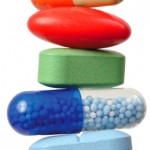One early measure of efficacy of the trial, he said, was the high number of patients who continued in this study. Across the three treatment arms, only 5–7% of patients discontinued treatment due to adverse events.
Novel Agent Shows Promise for Treatment of Active RA
In the first presentation of results of a new biologic with a different mode of action from established treatment options for RA, Harald Burkhardt, MD, of the CIRI/division of rheumatology at Johann Wolfgang Goethe-University in Frankfurt am Main, Germany, reported on the results of a multinational trial, double-blind, placebo-controlled phase Ib/IIa study on the safety and clinical activity of MOR103, a human monoclonal antibody targeting granulocyte-macrophage colony-stimulating factor, to treat patients with active moderate RA.
Pooling data from three European patient cohorts, the study included 96 patients (69 undergoing treatment with MOR103 and 27 in a placebo group) with active adult onset of RA of at least six months duration despite ongoing treatment, and moderate disease as indicated by >3 swollen and tender joints, elevated C-reactive protein, and a DAS28-erythrocyte sedimentation rate <5.1. The study used a sequential ascending dose design to randomize the patients treated with MOR103 to three different doses administered intravenously. Of the 69 patients who received MOR103, 24 received 0.3 mg/kg, 22 received 1.0 mg/kg, and 23 received 1.5 mg/kg. Most of these patients, along with the 27 in the placebo group, also received concurrent treatment with MTX. Other drugs used concurrently in all cohorts included other DMARDs, glucocorticosteroids, and nonsteroidal antiinflammatory drugs.
Based on an intent-to-treat analysis, the study found no statistically significant differences in adverse events between the active treatment cohorts and placebo groups, with the majority of adverse events reported as mild to moderate in all of the cohorts. Among the patients treated with MOR103, the most frequent adverse events were nasopharyngitis (n=9) and worsening of RA (n=9). Of the nine patients in whom RA worsened, all but one had worsening of the disease four weeks after the last treatment, according to Dr. Burkhardt. One serious adverse event (paronychia) was reported in the placebo group and one (pleurisy) in a patient treated with 0.3 mg/kg of MOR103 that required hospitalization.
Using ACR20, DAS28 changes, and European League Against Rheumatism (EULAR) responses at Days 29 and 57 to assess clinical activity, the study found the most significant therapeutic effect of MOR103 in patients treated with 1 mg/kg with 68.2% of patients in this cohort achieving the ACR20 endpoint at Week 4 compared to 7.4% in the placebo group (P=0.0001). Patients treated with MOR103 1.5 mg/kg also showed a therapeutic effect, although it did not significantly differ from placebo (30.4% versus 7.4%, respectively).

